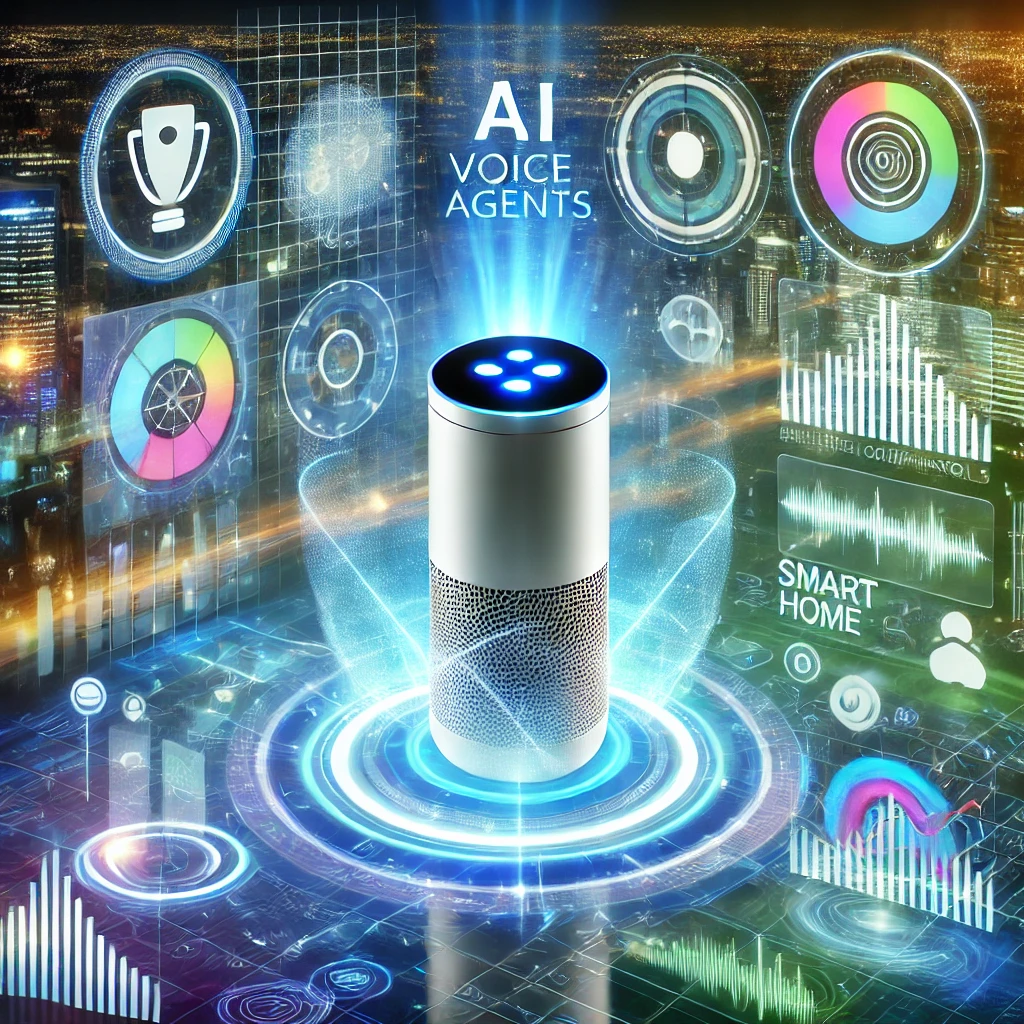AI-Powered Voice Agents: Revolutionizing Communication and Automation

AI-Powered Voice Agents: Revolutionizing Communication and Automation
In an increasingly connected world, businesses and individuals are turning to innovative technologies to streamline communication and improve efficiency. One such breakthrough is the AI-powered voice agent. These intelligent systems leverage artificial intelligence, natural language processing (NLP), and machine learning to perform tasks traditionally handled by human operators. From booking appointments to customer support, AI voice agents are transforming industries by offering speed, accuracy, and availability.
What Is an AI-Powered Voice Agent?
An AI-powered voice agent is an advanced software system capable of engaging in human-like conversations over voice channels. Unlike conventional Interactive Voice Response (IVR) systems that rely on preset menu options, AI voice agents understand and interpret natural language to provide relevant responses.
They utilize key AI technologies, including:
- Natural Language Processing (NLP): Enables understanding and generating human language.
- Automatic Speech Recognition (ASR): Converts spoken words into text.
- Machine Learning (ML): Learns from interactions to improve accuracy and performance over time.
- Text-to-Speech (TTS): Converts textual responses into spoken words.
Key Features of AI-Powered Voice Agents
-
Real-Time Interaction AI voice agents provide instant responses, eliminating the need for long wait times.
-
Personalization They can access customer data and offer tailored interactions, such as remembering preferences or addressing past issues.
-
Multilingual Support These agents can communicate in multiple languages, making them versatile for diverse audiences.
-
Omnichannel Integration AI-powered agents can integrate with various platforms like phone systems, chat applications, and customer relationship management (CRM) tools.
-
Scalability They handle multiple calls simultaneously, ideal for businesses experiencing high call volumes.
Applications Across Industries
1. Customer Support
AI voice agents answer FAQs, troubleshoot common issues, and escalate complex queries to human agents.
2. Healthcare
From booking doctor appointments to sending medication reminders, AI agents enhance patient engagement and operational efficiency.
3. Retail
Voice agents assist with order placement, delivery tracking, and product recommendations.
4. Banking and Finance
They help customers check account balances, make payments, and learn about financial products securely.
5. Travel and Hospitality
AI voice agents facilitate ticket bookings, itinerary changes, and hotel reservations.
Benefits of AI-Powered Voice Agents
-
24/7 Availability Voice agents operate around the clock, providing uninterrupted service.
-
Cost Efficiency By automating repetitive tasks, businesses reduce staffing costs while maintaining high service quality.
-
Improved Accuracy AI systems minimize human errors, ensuring consistent and precise responses.
-
Enhanced Customer Experience Fast, personalized interactions lead to higher customer satisfaction.
-
Data-Driven Insights Voice agents analyze interactions to provide valuable insights into customer behavior and preferences.
Technical Components of AI Voice Agents
-
Speech-to-Text and Text-to-Speech Engines These components handle the core conversion between spoken words and textual data.
-
AI Models for Understanding Context Using deep learning models like transformers, voice agents grasp conversational context and intent.
-
Cloud Infrastructure Voice agents often run on cloud platforms, ensuring scalability and seamless updates.
-
APIs for Integration APIs connect the voice agent with external systems, such as databases or third-party software.
Challenges and Considerations
-
Privacy and Security Handling sensitive data, especially in sectors like healthcare and finance, requires robust encryption and compliance with regulations like GDPR or HIPAA.
-
Accent and Dialect Variability Ensuring the agent understands diverse accents and dialects can be complex.
-
User Adoption Some customers may prefer human interaction, making it essential to balance AI with live support.
-
Training and Maintenance Continuous updates and retraining are necessary to keep the system effective and up-to-date.
Future of AI-Powered Voice Agents
The next generation of AI voice agents will leverage advancements in emotional AI, enabling them to detect and respond to user emotions. Integration with IoT devices will make them more versatile, while advancements in unsupervised learning will further refine their conversational abilities.
In time, AI voice agents will become indispensable in business and personal communication, helping us save time, improve efficiency, and deliver exceptional experiences.
In Conclusion AI-powered voice agents are redefining how we interact with technology and businesses. Their ability to process natural language, learn from interactions, and provide instant, accurate responses makes them an essential tool for modern communication and automation. As this technology evolves, it promises to unlock even greater potential, making life simpler and businesses smarter.
Recent posts
- The difference and connection between AI Agent and Agentic AI
- How AI Agents Will Reshape the Future of Work
- Revolutionizing Real-Time Appointment Booking for Massage Stores with AI-Powered Voice Agents
- Revolutionizing Appointment Booking for Acupuncture Clinics with AI-Powered Voice Agents
- Transforming Plumbing Businesses with AI-Powered Voice Agents
- AI-Powered Voice Agents: Revolutionizing Communication and Automation
- 10 Notable features of modern AI-powered voice agents
- AI-powered voice agents - what can do for us?
- The Power of AI-Powered Voice Agents for Real-Time Appointment Booking
- Transforming Restaurant Phone Orders with AI-Powered Voice Agents
- Revolutionizing the Dental Industry with AI-Powered Voice Agents
- AI-Powered Voice Agents: Revolutionizing Real-Time Appointment Booking for Healthcare Clinics
